|
This is my dynamic, frequently updated homepage. This is a NewsLog, also known as a WebLog or Blog.
Everything is evolving, so don't assume too much.
People to watch:
Adina Levin
Andrius Kulikauskas
Britt Blaser
Catherine Austin Fitts
Chris Corrigan
Clay Shirky
Dan Gillmor
Dave Pollard
David Allen
David Weinberger
Dewayne Mikkelson
Dina Mehta
Doc Searls
Elisabet Sahtouris
Elizabeth Lawley
Euan Semple
Florian Brody
Frank Patrick
Gen Kenai
George Dafermos
George Por
Graham Hancock
Greg Elin
Hazel Henderson
Heiner Benking
Inspector Lohman
Jean Houston
Jerry Michalski
Jim McGee
Jim Moore
John Abbe
John Perry Barlow
John Robb
Joi Ito
Jon Husband
Jon Lebkowsky
Jon Udell
Jonathan Peterson
Judith Meskill
Julian Elvé
Julie Solheim
Kevin Marks
Lawrence Lessig
Leif Smith
Letecia Layson
Lilia Efimova
Lisa Rein
Marc Canter
Mark Oeltjenbruns
Mark Pilgrim
Mark Woods
Martin Dugage
Martin Roell
Mary Forest
Matt Mower
Max Sandor
Michael Fagan
Mike Owens
Mikel Maron
Mitch Kapor
Mitch Ratcliffe
Nathalie dArbeloff
Netron
Noam Chomsky
Paul Hughes
Peter Kaminski
Phil Wolff
Philippe Beaudoin
Ray Ozzie
Raymond Powers
Rebecca Blood
Roger Eaton
Roland Tanglao
Ross Mayfield
Scott Lemon
Sebastian Fiedler
Sebastien Paquet
Skip Lancaster
Spike Hall
Steven Johnson
Stuart Henshall
Thomas Burg
Thomas Madsen-Mygdal
Thomas Nicholls
Timothy Wilken
Todd Suomela
Tom Atlee
Tom Munnecke
Tom Tomorrow
Ton Zijlstra
Lionel Bruel
Loic Le Meur
Nancy White
Mark Frazier
Merlin Silk
Robert Paterson
Colby Stuart
Nova Spivack
Dan Brickley
Ariane Kiss
Vanessa Miemis
Bernd Nurnberger
Sites to watch:
Electronic Frontier Foundation
Co-intelligence Institute
Free Expression Network
Collective Intelligence
Action without borders
Manufacturing Dissent
Explorers Foundation
Disclosure Project
ThoughtsOnThinking
Forbidden Science
Emergent by Design
Greater Democracy
Global Ideas Bank
Independent Media
Space Collective
Friendly Favors
Escape Velocity
Disinformation
Collective Web
WorldChanging
YES Magazine
Disinfopedia
NotThisBody
MetaFilter
Webcamorama
BoingBoing
Smart Mobs
Do No Harm
Imaginify
FutureHi
Openworld
Nanodot
HeadMap
Rhizome
Absara
Edge
Junto
French:
Emmanuelle
Manur
Elanceur
Loeil de Mouche
IokanaaN
Blog d'Or
Le Petit Calepin
GeeBlog
Absara
Guillaume Beuvelot
Ming Chau
Serge Levan
Jean Michel Billaut
C'est pas Mécanique

I live in Toulouse, France where the time now is:
01:08
Unique Readers:

Primarily
Public Domain
Everything I've written here is dedicated to the
Public Domain.

The quotes from other people's writings, and the pictures used might or might not be copyrighted, but are considered fair use. Thus, overall, this weblog could best be described as being:
Primarily Public Domain. |
Syndication:
 ![Validate my RSS feed [Valid RSS]](http://www.newciv.org/pic/valid-rss.png)
|
| Saturday, January 4, 2003 |  |
|
|
|
 A 1,000m tall tower is planned as part of a huge 200MW solar power plant in the Australian outback. The air under a 4 mile diameter circle of glass would be heated by the sun, and the heat would rise up into the tower where turbines would convert it into electricity. It is planned to be completed in 2006, at a cost of A$1b and would be by far the tallest free-standing structure in the world. A 1,000m tall tower is planned as part of a huge 200MW solar power plant in the Australian outback. The air under a 4 mile diameter circle of glass would be heated by the sun, and the heat would rise up into the tower where turbines would convert it into electricity. It is planned to be completed in 2006, at a cost of A$1b and would be by far the tallest free-standing structure in the world.
[ Energy | 2003-01-04 23:54 | | PermaLink ] More >
|
|
| Friday, January 3, 2003 |  |
|
|
|
 I used to think I spoke and wrote English really well, considering that it isn't my first language. And maybe I'm not too bad, but recently I catch myself looking at what I write, and it seems like I'm just babbling about things I don't really know anything about, using the wrong words, put together wrong. Just mimicking what real people are doing. Like an improv comic giving a convincing lecture on nuclear physics in Chinese, despite knowing neither. Buckminster Fuller once had a personal crisis where he wasn't sure what anything really meant, and he vowed to not speak again before he would be able to say things precisely. He didn't say anything to anybody for about two years, and when he finally did, what he was saying was indeed amazingly coherent and precise. But he was also inventing a bunch of words nobody else was using. Hm, I'm not planning on duplicating that. But maybe I'll spend a bit more time in silence each day, so I can be more sure that I'll actually be saying things that need to be said. I used to think I spoke and wrote English really well, considering that it isn't my first language. And maybe I'm not too bad, but recently I catch myself looking at what I write, and it seems like I'm just babbling about things I don't really know anything about, using the wrong words, put together wrong. Just mimicking what real people are doing. Like an improv comic giving a convincing lecture on nuclear physics in Chinese, despite knowing neither. Buckminster Fuller once had a personal crisis where he wasn't sure what anything really meant, and he vowed to not speak again before he would be able to say things precisely. He didn't say anything to anybody for about two years, and when he finally did, what he was saying was indeed amazingly coherent and precise. But he was also inventing a bunch of words nobody else was using. Hm, I'm not planning on duplicating that. But maybe I'll spend a bit more time in silence each day, so I can be more sure that I'll actually be saying things that need to be said.
[ Diary | 2003-01-03 03:43 | | PermaLink ] More >
|
|
|
|
I haven't yet succeeded in making it to one of the blog meetup events in L.A., but hopefully next time. And here's another upcoming blogger event I'm planning to attend, from Reverse CowGirl:"right now, i'm thinking a lot about blogs. blogs, blogs, blogs. blogs all the time around here. currently, i'm co-producing, with technophile Beverly Tang, a panel on blogging that will take place on February 1st at Miltos Manetas' Electronic Orphanage under the Rhizome banner. cyberfille Xeni Jardin will be moderating. the current line-up thus far features the likes of Mark Frauenfelder, Doc Searls, and myself. two other panelists are still being virtually hunted down like e-dogs in the cyberstreet at this time.
i would like to find someone who is alternoblogging. vlogging. audioblogging. moblogging. blogging-as-art. photoblogging with no words whatsoever ever. blogging in a newish way that pushes at the boundaries of the medium. and, they have to be in LA on 2/1. do you know of anyone? it was nice to hear from Jeff Jarvis, Howard Rheingold, and Joi Ito. but, i would like to hear about an alternoblogger too." Well, I wish I were an alternoblogger, broadcasting my experiences in 3D feel-o-rama wireless reality, at least some of the time.
[ Information | 2003-01-03 04:16 | | PermaLink ] More >
|
|
|
|
 From Common Dreams: From Common Dreams:"While Nike was conducting a huge and expensive PR blitz to tell people that it had cleaned up its subcontractors' sweatshop labor practices, an alert consumer advocate and activist in California named Marc Kasky caught them in what he alleges are a number of specific deceptions. Citing a California law that forbids corporations from intentionally deceiving people in their commercial statements, Kasky sued the multi-billion-dollar corporation.
Instead of refuting Kasky's charge by proving in court that they didn't lie, however, Nike instead chose to argue that corporations should enjoy the same 'free speech' right to deceive that individual human citizens have in their personal lives. If people have the constitutionally protected right to say, 'The check is in the mail,' or, 'That looks great on you,' then, Nike's reasoning goes, a corporation should have the same right to say whatever they want in their corporate PR campaigns." And here's some more detail as to the current situation:"In the next few weeks the U.S. Supreme Court will decide whether or not to hear Nike's appeal of the California Supreme Court's decision that Nike was engaging in commercial speech which the state can regulate under truth in advertising and other laws. And lawyers for Nike are preparing to claim before the Supreme Court that, as a "person," this multinational corporation has a constitutional free-speech right to deceive.
The U.S. Chamber of Commerce, Exxon/Mobil, Monsanto, Microsoft, Pfizer, and Bank of America have already filed amicus briefs supporting Nike. Additionally, virtually all of the nation's largest corporate-owned newspapers have recently editorialized in favor of Nike and given virtually no coverage or even printed letters to the editor asserting the humans' side of the case." It is of course quite enlightening to hear exactly which companies stand up to support their own right to lie.
[ News | 2003-01-03 04:30 | | PermaLink ] More >
|
|
|
|
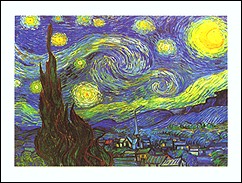 Euan Semple says: Euan Semple says:"Some of us believe that God exists, if at all, in all of us. That we are all godlike and have the potential to be at one with the wholeness of experience if we could just get out of our own way.
Others believe that God is elsewhere, a presence outside of our experience which controls all that we do, who will look after us if we do the right thing.
This split drives everything, organisations, society, the web.
We give up responsibility to that force outside ourselves or we take responsibility for ourselves. We conform to socially agreed stereotypes or work out what makes us happy and follow that; we trust the structures set up by others or we trust ourselves; we are drawn to client server or peer to peer, Microsoft or Apple, indoors our outdoors, death or life.
Herendeth the lesson" I'm hearing, and I think it's true. It seems so simple. But so easily we get lost. I would also expand it to say that it isn't even about God, as many who believe there is no such thing will still put the control outside themselves. The key thing, I think, is whether or not I feel that life has something to do with *me*. I.e. whether or not I feel that my choices really make a difference, and I have a reason and a responsibility to make things good. Versus whether I feel powerless - an insignificant and expendable cog in a huge machinery - and I just do what I can get away with, grabbing up every little advantage I can carve out for myself.
[ Inspiration | 2003-01-03 14:30 | | PermaLink ] More >
|
|
|
|
From Future Positive, an article by Dee Hock."Leader presumes follower. Follower presumes choice. One who is coerced to the purposes, objectives, or preferences of another is not a follower in any true sense of the word, but an object of manipulation. Nor is the relationship materially altered if both parties accept dominance and coercion. True leading and following presume perpetual liberty of both leader and follower to sever the relationship and pursue another path. A true leader cannot be bound to lead. A true follower cannot be bound to follow. The moment they are bound, they are no longer leader or follower. The terms leader and follower imply the freedom and independent judgment of both. If the behavior of either is compelled, whether by force, economic necessity, or contractual arrangement, the relationship is altered to one of superior/subordinate, management/employee, master/servant, or owner/slave. All such relationships are materially different than leader-follower.
Induced behavior is the essence of leader-follower. Compelled behavior is the essence of all the others. Where behavior is compelled, there lies tyranny, however benign. Mere behavior is induced, there lies leadership, however powerful. Leadership does not imply constructive, ethical, open conduct. It is entirely possible to induce destructive, malign, devious behavior and to do so by corrupt means. Therefore, a clear, meaningful purpose and compelling ethical principles evoked from all participants should be the essence of every relationship, and every institution." Lots more there. Great stuff. For those who don't know, Dee Hock was the guy who created VISA, which is an example of a 'chaordic' organization. Non-hierarchical, all participants are relatively free to act on their own.
[ Organization | 2003-01-03 17:39 | | PermaLink ] More >
|
|
| Thursday, January 2, 2003 |  |
|
|
|
 Paul Hughes has a vision: Paul Hughes has a vision:
"Imagine this. It's the year 2010, and almost everyone has a real-time always-on connection to the Net via ubiquitous wearable 'augmented reality' devices. As part of this package, made possible with advance minuturized heads-up displays, video cameras, location aware devices, GPS, swarmbots, emotion-sensitive and adaptive algorithms (i.e. Affective Computing), and sophisticated reputation systems, you are able to surf an augmented version of reality itself in real time.
Lets break this down. You would be able to, in real-time see precisely whats going on anywhere in the globe by jacking in to the collection of real-time video blogs. As part of this collection, sophisticated 3-D rendering engines would be able to take the collective video footage and extropolate a real-time VR scene, allowing you to transcend the viewing angle of any single camera. Better still, you could jack in to that part of the world from a variety of, not only physical perspectives, but political, intellectual, and emotional as well based on whatever any individual user makes public as part their unique sliding-scale trust system such as the type that Joi Ito has proposed with moblogs. All of this meta-data would form its own collective smart-mob based on individually selected criteria.
What this means is that you could then view the "scene" from virtually any angle. Imagine the possibility here. Some spontaneous news event occurs, and almost instantly as hundreds of people appear on the scene with wearable video cameras broadcasting on the net, you would be able to view this real-time scene from any angle, while simultaneously gaining the collective emotional assesment of the situation from those people choosing to broadcast their emotional indices, as well as the blogging that will invariable start occuring at rapid pace from your customized reputation/trust criteria.
All of this combines to gives you a real-time augmented, yet customized view of real-time reality. One that is rich in social and emotional context, providing and extending intimacy by empowering you to feel and touch the whole world." Yes, it's cool, I want it badly. It is nice to sit and write with people all over the world, but really I want to BE in those places. Hang out, look around, soak up the atmosphere. And I'm tired of people instantly lining up and putting on fake smiles when I pull out a camera. I want the real stuff, so I'd much rather have an always-on camera in my glasses.
[ Technology | 2003-01-02 03:56 | | PermaLink ] More >
|
|
|
|
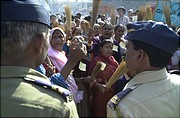 According to Greenpeace News, Dow Chemical, the worlds largest chemical company, and new owners of Union Carbide, is suing survivors of the 1984 Union Carbide gas disaster in Bhopal, India, which killed thousands of people. On December 2nd a peaceful march of 200 women survivors from Bhopal delivered toxic waste from the abandoned Carbide factory back to Dow's Indian headquarters in Bombay with the demand that Dow take responsibility for the disaster and clean up the site. Instead, Dow files a lawsuit against them for $10,000 for "loss of work". One Dow employee briefly came outside to meet the protesters. Apparently he's very well paid. On the other hand, that amounts to about 10 years of income for those particular protesters. Dow's new CEO, William Stravopoulos, is the person who engineered the Dow merger with Union Carbide in 2001. According to Greenpeace News, Dow Chemical, the worlds largest chemical company, and new owners of Union Carbide, is suing survivors of the 1984 Union Carbide gas disaster in Bhopal, India, which killed thousands of people. On December 2nd a peaceful march of 200 women survivors from Bhopal delivered toxic waste from the abandoned Carbide factory back to Dow's Indian headquarters in Bombay with the demand that Dow take responsibility for the disaster and clean up the site. Instead, Dow files a lawsuit against them for $10,000 for "loss of work". One Dow employee briefly came outside to meet the protesters. Apparently he's very well paid. On the other hand, that amounts to about 10 years of income for those particular protesters. Dow's new CEO, William Stravopoulos, is the person who engineered the Dow merger with Union Carbide in 2001.
[ News | 2003-01-02 16:11 | | PermaLink ] More >
|
|
|
|
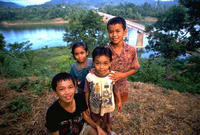 The Jhai Foundation is working on providing Internet access for remote villages in Laos. They've put together a system where sturdy low-wattage computers can be powered by a foot-crank, and a system in each village can be linked with the others, and with the net, through high-bandwidth wireless networking. The Jhai Foundation is working on providing Internet access for remote villages in Laos. They've put together a system where sturdy low-wattage computers can be powered by a foot-crank, and a system in each village can be linked with the others, and with the net, through high-bandwidth wireless networking."Farmers in Ban Phon Kam and nearby villages are now able to grow surpluses of rice and other crops-thanks in part to organic farming techniques that Jhai helped introduce. To profit on their surplus, however, they need accurate and timely information about pricing in the market town of Phon Hong and the capital, Vientiane.
The expert women weavers in the villages have begun the use of natural dyes-again with assistance from Jhai-and would like to weave textiles for export. They hope to find partners among expatriate Lao who will help them market their weavings and receive reasonable returns." Lee Felsenstein, veteran computer hero, is helping them. Right now they need some funds ($25,000) to get the basic system in place before the monsoon season.
[ Projects | 2003-01-02 16:45 | | PermaLink ] More >
|
|
| Wednesday, January 1, 2003 |  |
|
|
|
 Do you know the old fairy tale about the magical soup stone? It exists in many versions. Like, a Swedish one, a Japanese version, the Shel Silverstein song, and many more. In brief, a mysterious stranger comes to town, and he claims that he has a magical stone that you can cook soup with again and again. Everybody is really incredulous. But, to prove it, he puts it in a pot of boiling water. And the soup cooks, and it is coming along fine, he declares, but, hm... maybe a little bit of spices would make it just a bit better. So, somebody goes and gets him some spices. And the soup is cooking great. The bystanders are fascinated. But... maybe some potatoes and some carots would top it off just great. And the soup is just about done, but, hm... maybe a bit of meat and some flour would just round off the experience really well. And so forth, it goes on like that for a while... And, the villagers are amazed - the most wonderful soup has been cooked, and they have a great feast together, enjoying and celebrating the magical stone soup. Do you know the old fairy tale about the magical soup stone? It exists in many versions. Like, a Swedish one, a Japanese version, the Shel Silverstein song, and many more. In brief, a mysterious stranger comes to town, and he claims that he has a magical stone that you can cook soup with again and again. Everybody is really incredulous. But, to prove it, he puts it in a pot of boiling water. And the soup cooks, and it is coming along fine, he declares, but, hm... maybe a little bit of spices would make it just a bit better. So, somebody goes and gets him some spices. And the soup is cooking great. The bystanders are fascinated. But... maybe some potatoes and some carots would top it off just great. And the soup is just about done, but, hm... maybe a bit of meat and some flour would just round off the experience really well. And so forth, it goes on like that for a while... And, the villagers are amazed - the most wonderful soup has been cooked, and they have a great feast together, enjoying and celebrating the magical stone soup.
Superficially you might think it is a story about a con artist who tricks people into giving him the ingredients, while he takes the credit, and gets fed for free. But how I find it inspiring is how it is also a great pattern for how to make things happen starting absolutely from scratch. Most particularly, this works well in a very connected virtual world. The thing is that most of the resources and knowledge needed to do anything is available somewhere out there. You don't necessarily have to legally possess it yourself before you get started. Sometimes it just takes somebody who stands up and declares "Let's make soup!" and who keeps the magic going, while people bring resources to the table.
I've seen it a number of times on the Internet. If you sort of hang up a sign and start to publically inquire into a certain subject, the ingredients will start arriving. The people who actually are experts will come out of the woodwork. Knowledge will start to accummulate. Resources will appear. And it often depends on one, or a few people, who keep the magic in the air while things are coming together. They might have nothing but the idea or the desire to start with. But people will bring what is missing, and along the way there is plenty of opportunity for becoming an expert in soup.
But it doesn't work without the magical soup stone. People, expertise and resources don't necessarily come together by themselves, without a strong continuous intention and a bit of showey magic. It takes a catalyst.
[ Inspiration | 2003-01-01 18:12 | | PermaLink ] More >
|
|
|
|
Seems to me that the purpose of digital identity would be that others, also others' websites, will recognize WHO I am, so they can respond appropriately to me. Both for their sake and for mine. And that WHO structure will inevitably be some sort of simplified representation. The task would be to make it a useful and fairly truthful representation, both for me and others.
I can think of several sections of that, off the top of my head:- A. How to identify and maybe locate me, like a finger print or a GPS tracker. Making sure there is one and only one of me.
- B. How my various public facades and/or credentials are stored
- The, possibly several, masks I personally put on. Aliases, interests, contact address, website, preferences, etc
- The credentials I have from membership in various groups. My IDs, my job titles, degrees, credit cards, driving record, etc., which I can't directly change, but I can withdraw from a particular group.
- What various agencies collect about me without my explicit permission. Search engines, quotes, articles, credit reports, mailing lists, etc.
- C. How my actual reputation is represented. How well regarded I am, what I've actually accomplished, and how much people trust me.
A would be a binary thing. Is it me or isn't it me? B would be mostly a quantitative thing. How many so-and-so are recorded on me and where are they. C would be qualitative. What does it really add up to?
I am most interested in the problem of how to best approximate a truthful picture of my reputation, and that is probably the hardest part. There is no way around it, but that it has to be assembled from what other people think, not from what *I* think. Maybe there are automated algorithms that can help constuct it from incidental information, but I feel strongly that it has to mainly be from a record of personal relations and transactions, not from a frozen public records, automatic logs of my behavior, or from titles and memberships I hold. What is important is that there are some actual, real people who trust me, and that they themselves are trustworthy. Not whether I wen't bankrupt 10 years ago, or whether I visited a lot of pornographic websites last year, or whether I'm a Rotarian and a Ph.D. In some contexts those things are important, but as a universal index of my character, they're flawed.
I know a person who killed somebody else in a fight and who spent years in prison for it. He is now one of the warmest and most trustworthy people I can think of, and I wouldn't hesitate to trust him with my life. I'm sure he has many friends who would vouch for him, but he's a very low-key person.
I knew somebody else who killed another person in stupidity, but didn't go to prison, as he was a minor at the time. He was still a volatile person many years later, and I would not turn my back with him in the room. He had no friends, and it would be hard to find anybody who could say anything about him.
I knew somebody who was rich, and a respected leader for many people, who would probably have many people around who would vouch for what a stellar person he is, because they depend on him for making a living. His credit record is impeccable and he probably has no criminal record. But I think he wouldn't hesitate long to pay for having somebody else killed if they crossed him in a business deal.
Public records and credit reports would point me towards staying away from the first person, would probably tell me nothing about the second, and would tell me that the third would be somebody to get to know. If we went by testimonials from other people, the third would have the most, because he's known and admired by more people. The first person would have some, and the 2nd would have none.
So, a task is how to organize a system of personal relations and reputation, without having it be affected by peer pressure or large amounts of money. And it needs to remain current, so that we're talking about the situation now, not 20 years ago. People change.
[ Organization | 2003-01-01 18:31 | 0 comments | PermaLink ]
|
|
|
|
Andre Durand knows a lot about digital identities. In Anatomy of a Digital Reputation he gives a good overview of issues around digital identity and reputation. Like, on why we even should care about our reputation:"1) our reputation is often tightly coupled with our sense of self-worth, serving as an external reflection of who we are, or who we wish to be and
2) our reputation can precede our physical being, serving to 'open doors' or generally make our lives more convenient or to close doors, in which case we are blocked from doing something or going somewhere, and we might never know why.
At any moment in time, our reputation is nothing more than a snapshot of our historical interactions with others. If the snapshot supports what we say about ourselves, then our reputation is positively amplified (R+1). If the snapshot contradicts what we have said about ourselves, then our reputation is diminished (R-1).
As reputations bearing any weight and credibility are only built over time, it’s difficult to truly circumvent their creation. This is often why we learn early the value of 'borrowing' a reputation. Namedropping is nothing more than an attempt to place oneself in the positive glow of another’s positive reputation, hoping that it will make our life easier in the process or gain us access to something which we would not normally have access to on our own. How many times have you specifically gone someplace with someone who you knew was bearing the credentials and reputation of being 'well-connected'. (e.g. 'I'm good friends with the owner and he always let’s us in for free.')
Reputations are likely the most important quality enabled by identity and I believe that digital reputations will likely become the core and central reason why individuals will choose to have a digital identity in the future."
[ Organization | 2003-01-01 18:52 | | PermaLink ] More >
|
|
|
|
Very strange. Samuel Pepys, the renowened 17th century British diarist, now has a weblog. That is, Phil Gyford has imported Pepys' diaries into a Movable Type weblog format. And, not enough with that, now he is arranging it so that, from today, one entry is being posted each day, corresponding to the same date in the year 1660. And the weblog is even syndicated with RSS. It feels strange to read it, across all that time, as if it is happening today.
[ Information | 2003-01-01 23:58 | | PermaLink ] More >
|
|
| Tuesday, December 31, 2002 |  |
|
|
|
 Here's an idea for a useful gadget or application: You walk around the supermarket and you see a product or a brand you might consider buying. Before you do so, you enter it into your little handheld wireless device. Maybe even by scanning the barcode. It then looks up information about that company and/or product on the net, organized to be from sources you trust in that regard. So, not simply a google search and certainly not the company's own website, but the inside scoop from people with no vested interest in faking it. It gives you a quick snapshot about who owns the company, what they're doing in the world that is good or bad, what the product actually is about, and how other people have liked it. Instant consumer guide investigatory report. The technology is not hard, as it is just about there. It is more in the packaging of it. A wireless PDA or cellphone with a simple web browser. Small barcode readers are available, but it should be integrated. Aside from that, the trick is mainly in putting the knowledgebase together in a way that can be trusted, and providing an interface that makes it a 5 second no-brainer thing to do as routine. Of course you want to know that the company in question employs child slave labor and that they've patented Basmati rice, and that previous customers liked the alternatives better. And you'd want to know what those ingredients really mean, right there on the spot. Such a device could change the world overnight. Even if you aren't an activist eco-freak, it would inevitably change your choices. Here's an idea for a useful gadget or application: You walk around the supermarket and you see a product or a brand you might consider buying. Before you do so, you enter it into your little handheld wireless device. Maybe even by scanning the barcode. It then looks up information about that company and/or product on the net, organized to be from sources you trust in that regard. So, not simply a google search and certainly not the company's own website, but the inside scoop from people with no vested interest in faking it. It gives you a quick snapshot about who owns the company, what they're doing in the world that is good or bad, what the product actually is about, and how other people have liked it. Instant consumer guide investigatory report. The technology is not hard, as it is just about there. It is more in the packaging of it. A wireless PDA or cellphone with a simple web browser. Small barcode readers are available, but it should be integrated. Aside from that, the trick is mainly in putting the knowledgebase together in a way that can be trusted, and providing an interface that makes it a 5 second no-brainer thing to do as routine. Of course you want to know that the company in question employs child slave labor and that they've patented Basmati rice, and that previous customers liked the alternatives better. And you'd want to know what those ingredients really mean, right there on the spot. Such a device could change the world overnight. Even if you aren't an activist eco-freak, it would inevitably change your choices.
 ...[later in the day] Ah, Seb Paquet mentions CueJack is doing something very much pointed in that direction. It uses the cheap CueCat barcode reader. I remember getting one for free attached to a copy of Wired, but I think I threw it away because I didn't know what to do with it at the time, as its proposed use (looking up a company's website while you were reading a magazine) sounded stupid. DigitalConvergence that made them has gone under. But there is now apparently an open source database of UPC (the system used in barcodes). CueJack will look up in that, and will do a search engine search on 'boycott', 'corporate abuse', 'profits' and that kind of thing in relation to the product. Cool, those are big steps in the right direction. But, I'd want housewives to be able to have it in their purse, and preferably something more direct than searching in search engines. ...[later in the day] Ah, Seb Paquet mentions CueJack is doing something very much pointed in that direction. It uses the cheap CueCat barcode reader. I remember getting one for free attached to a copy of Wired, but I think I threw it away because I didn't know what to do with it at the time, as its proposed use (looking up a company's website while you were reading a magazine) sounded stupid. DigitalConvergence that made them has gone under. But there is now apparently an open source database of UPC (the system used in barcodes). CueJack will look up in that, and will do a search engine search on 'boycott', 'corporate abuse', 'profits' and that kind of thing in relation to the product. Cool, those are big steps in the right direction. But, I'd want housewives to be able to have it in their purse, and preferably something more direct than searching in search engines.
And then Paul Hughes has a piece on very similar ideas about "Participatory Capitalism":"I think as wireless, wearable internet access become ubiquitous, we are going to see consumer power re-assert itself in an unprecedented way. Imagine for example, CueCat (a technology previously with little purpose), except this time each barcode is cross-referenced with a moblog not only neatly containing everyones opinion of this product, but also its ethical/corruption index. These types of measurements would be made via decentralized ad-hoc smart mobs in conjunction with individual reputation systems. So, not only will you be able to vote with your pocketbook, but you will be able to make informed, even ethical consumer decsions based on people you trust. I can see this web-of-trust rapidly superceding top-heavy "consumer" capitalism, transforming it into a bottom-up grass-roots participatory capitalism."
[ Technology | 2002-12-31 03:39 | | PermaLink ] More >
|
|
|
|
From an article by Michael Parenti, quoted at SynEarth
"The super rich, the less than 1 percent of the population who own the lion's share of the nation's wealth, go uncounted in most income distribution reports. Even those who purport to study the question regularly overlook the very wealthiest among us. For instance, the Center on Budget and Policy Priorities, relying on the latest U.S. Census Bureau data, released a report in December 1997 showing that in the last two decades "incomes of the richest fifth increased by 30 percent or nearly $27,000 after adjusting for inflation." The average income of the top 20 percent was $117,500, or almost 13 times larger than the $9,250 average income of the poorest 20 percent.
But where are the super rich? An average of $117,500 is an upper-middle income, not at all representative of a rich cohort, let alone a super rich one. All such reports about income distribution are based on U.S. Census Bureau surveys that regularly leave Big Money out of the picture. A few phone calls to the Census Bureau in Washington D.C. revealed that for years the bureau never interviewed anyone who had an income higher than $300,000. Or if interviewed, they were never recorded as above the "reportable upper limit" of $300,000, the top figure allowed by the bureau's computer program. In 1994, the bureau lifted the upper limit to $1 million. This still excludes the very richest who own the lion's share of the wealth, the hundreds of billionaires and thousands of multimillionaires who make many times more than $1 million a year. The super rich simply have been computerized out of the picture." That is probably a pattern to watch. A lot of things can go unreported and relatively unnoticed because there just isn't an official category for it. You won't be counted in the traffic statistic if you fly your own jet. You won't be counted as a bank customer if you own the bank. Your political views won't be polled, because you're more likely to buy both candidates than to vote for anybody. There's a level at which you become invisible among the regular folks.
[ Politics | 2002-12-31 14:02 | 0 comments | PermaLink ]
|
|
|
|
 There is a discussion on digital identity happening among several prominent webloggers: Eric Norlin, Doc Searls, Mitch Ratcliffe, Britt Blaser and more. There seems to be general agreement that there needs to be a basic level of a person's public identity which the person himself will control. But aside from that, it is a bit fuzzy. Norlin outlines three tiers of identity, where the part the individual controls would be T1, but it doesn't sound like he's quite getting the other two right. I agree with Ratcliffe that the next level (T2) would be where one grants some kind of community the right to compile some kind of reputation information on you. Like in eBay where one can see how many trades people have done, and how happy the other parties were, or like in NCN where one can see how active other people are, and how well other people trust them. But one should be able to revoke the right to be tracked that way, in case one would rather be anonymous or start all over. And, of course, others would have the right to not deal with you because of that. Doc Searls calls T1 MyIdentity, T2 OurIdentity, and T2 TheirIdentity. The third tier (T3) would then be the composite guesswork made by marketers based on some demographics and public history. Ratcliffe and Searls relate Andre Durand's idea that "When T1 identities have real customer relationships with T2 partners, T3 goes away. We will have the final defeat of Marketing as Usual." Ah, yes. Correct and useful collaborative information will out-compete the sloppy one-sided centralized guesses. This whole discussion arises in part because there are big corporations who would much prefer if THEY own and control your identity altogether. So, this is a grassroots attempt of coming up with something better. Britt Blaser points out correctly that an individual never will own every aspect of their own ID, because it is our collective sense of a person that matters, not their own. People will interact with you based on their idea of who you are, and what you yourself tell them is only one part of it. Your history with them is more important. Overall, I think the task is to come up with something that as correctly as possible represents people's real reputation, which they obviously can't be allowed to construct on their own; and that has some built-in accountability, so that one can't easily run away from transactions without paying; and that can't be thwarted by the person himself entering false information; and that isn't either controlled by big heartless corporations who could care less if you're branded as a loser for the rest of your life. And fundamentally you need to be free to choose who you are in life, and how much of yourself you want to share with the world. It is a hard puzzle to solve well, but very important. There is a discussion on digital identity happening among several prominent webloggers: Eric Norlin, Doc Searls, Mitch Ratcliffe, Britt Blaser and more. There seems to be general agreement that there needs to be a basic level of a person's public identity which the person himself will control. But aside from that, it is a bit fuzzy. Norlin outlines three tiers of identity, where the part the individual controls would be T1, but it doesn't sound like he's quite getting the other two right. I agree with Ratcliffe that the next level (T2) would be where one grants some kind of community the right to compile some kind of reputation information on you. Like in eBay where one can see how many trades people have done, and how happy the other parties were, or like in NCN where one can see how active other people are, and how well other people trust them. But one should be able to revoke the right to be tracked that way, in case one would rather be anonymous or start all over. And, of course, others would have the right to not deal with you because of that. Doc Searls calls T1 MyIdentity, T2 OurIdentity, and T2 TheirIdentity. The third tier (T3) would then be the composite guesswork made by marketers based on some demographics and public history. Ratcliffe and Searls relate Andre Durand's idea that "When T1 identities have real customer relationships with T2 partners, T3 goes away. We will have the final defeat of Marketing as Usual." Ah, yes. Correct and useful collaborative information will out-compete the sloppy one-sided centralized guesses. This whole discussion arises in part because there are big corporations who would much prefer if THEY own and control your identity altogether. So, this is a grassroots attempt of coming up with something better. Britt Blaser points out correctly that an individual never will own every aspect of their own ID, because it is our collective sense of a person that matters, not their own. People will interact with you based on their idea of who you are, and what you yourself tell them is only one part of it. Your history with them is more important. Overall, I think the task is to come up with something that as correctly as possible represents people's real reputation, which they obviously can't be allowed to construct on their own; and that has some built-in accountability, so that one can't easily run away from transactions without paying; and that can't be thwarted by the person himself entering false information; and that isn't either controlled by big heartless corporations who could care less if you're branded as a loser for the rest of your life. And fundamentally you need to be free to choose who you are in life, and how much of yourself you want to share with the world. It is a hard puzzle to solve well, but very important.
[ Organization | 2002-12-31 16:55 | | PermaLink ] More >
|
|
|
|
 May 2003 be gloriously new and different, and may the best of your dreams come real in surprising ways! May 2003 be gloriously new and different, and may the best of your dreams come real in surprising ways!
"Far better to dare mighty things, to win glorious triumphs, though checkered by failure, than to take rank with those poor spirits who live in the gray twilight that knows not victory nor defeat." -- Theodore Roosevelt
[ Inspiration | 2002-12-31 17:45 | | PermaLink ] More >
|
|
| Monday, December 30, 2002 |  |
|
|
|
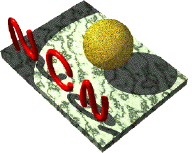 Something got me to start reminiscing about the history of the servers and websites I've been intimately involved with. Well, it is the end of the year, so I suppose it is appropriate. Something got me to start reminiscing about the history of the servers and websites I've been intimately involved with. Well, it is the end of the year, so I suppose it is appropriate.
I'm writing this in my weblog, which most people read at ming.tv, but which arises from the integrated NewsLog function of newciv.org - the New Civilization Network.
I had my first website in early 1994. It was served over ftp rather than http, because real web hosting was harder to come by. I called my website World Transformation, because that sounded like a good thing I'd be interested in, and I just listed some sub-interests and some links for each. Today it looks quite similar to back then, I'm embarrassed to say, which makes parts of it very outdated now. Later in that year I got an offer of free hosting on protree.com. At the time it turned out to be THE starting place for a bunch of alternative/metaphysical sites that later made it big, like Rene Mueller's SpiritWeb. Bob Garth who was running the server had just a 28.8 modem connection, but that worked perfectly fine in those days.
When NCN happened in early 1995, the thought was that there would be a bunch of decentralized servers, owned and operated by different people. Max Sandor started the first one, which he called "Server One". A 16MHz 386 running Slackware Linux. This too had an always on 28.8 modem for the net connection. Max took care of that for several years.
At some point I took that server over, and connected it to a new T1 connection in Venice, California, in the Global Solutions Center, later Synchronicity Networks office. Many more stories to tell about much of that. The hardware got replaced since then a few times. A total sequence of about 4 servers since 95 I think, although there have sometimes been several at the same time. Once, for several months, the servers lived in a plastic box on the parking lot by the beach in Venice, which was rather strange and risky. Somebody else had moved into the premises, but the T1 connection was still on, so we drilled a hole in the wall and led the cable out to that rubbermaid storage container, which was made for garden tools or something. Luckily nobody stole it. After that, the servers moved to Beverly Hills with the T1 line for another year or so, where I worked with Julie on the Oasis TV website and other things.
Nowadays there are luckily more options. I work out of my house and have a few servers here. The current main server is now located in Irvine, California, on a T1 line at the offices of one of my clients. NCN and my own sites are on it, as well as many other good non-profit sites such as Global Ideas Bank, International Society for the System Sciences, BagelHole, Spirit Rising, Richard Hawkins' Synergetic Geometry animations, Art of Living, Unity-and-Diversity Council, CyberSangha and probably many more I'm forgetting.
[ NCN | 2002-12-30 22:39 | | PermaLink ] More >
|
|
|
|
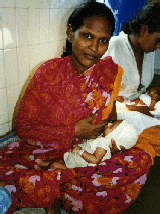 Baby Milk Action is a non-profit organisation which aims to save lives and to end the avoidable suffering caused by inappropriate infant feeding. Baby Milk Action works within a global network to strengthen independent, transparent and effective controls on the marketing of the baby feeding industry. Baby Milk Action is a non-profit organisation which aims to save lives and to end the avoidable suffering caused by inappropriate infant feeding. Baby Milk Action works within a global network to strengthen independent, transparent and effective controls on the marketing of the baby feeding industry. The World Health Organisation (WHO) estimates that 1.5 million infants die around the world every year because they are not breastfed. Where water is unsafe a bottle-fed child is up to 25 times more likely to die as a result of diarrhoea than a breastfed child. A marketing code was introduced in 1981 to regulate the marketing of breastmilk substitutes. Companies continue to violate it. Nestle is one of the biggest violators, aggressively marketing breastmilk substitutes in developing countries. See Nestle Boycott Campaign. Nestle distributes information in developing countries that promote artificial infant feeding and discourages breastfeeding. Nestle distributes free samples that last just long enough for the babies to be weaned off their mother's milk, after which they'll have to pay for Nestle's products, and, as mentioned above, if the water isn't safe, they're many times more likely to die. The company has a lot of blood on its hands by now.
[ Information | 2002-12-30 23:27 | | PermaLink ] More >
|
|
|
|
 "You keep lyin' when you oughta be truthin'
You keep losing when you oughta not bet
You keep samin' when you oughta be a'changin'
What's right is right but you ain't been right yet
These boots are made for walking
And that's just what they'll do
One of these days
These boots are gonna walk all over you ..."
--Nancy Sinatra
[ Inspiration | 2002-12-30 23:59 | 0 comments | PermaLink ]
|
|
|
|
In this article a guy named Chris Wilson describes in detail his experiences and his thought process while he is re-evaluating what kind of libertarian he is. Some excellent analysis there of some of the integral principles of capitalism.
"My experience in the work world forced me to seriously reconsider my advocacy of capitalism in any form. As I was still very committed to libertarian principles, I began to study the "socialist anarchists". (I put "socialist anarchist" in quotes, as I now consider such a term to be a redundancy -- anarchists are necessarily socialists.) I forced myself to consider the fundamental disagreement that separates Bakunin, Kropotkin, and Malatesta from Rand, von Mises, and Friedman. My answer to myself: The advocates of capitalism believe that one can sign away or sell off one's liberty, whereas anarchists do not. As a right-wing libertarian capitalist, I was of the opinion that one could enter into a morally binding agreement in which one sacrifices one's liberty in exchange for a wage. My position was that a worker would be committing fraud against the employer if he attempted to retain rights to the full product of his labor. My argument was that if an employer has a "legitimate" prior claim upon the capital being used, then he has the right to dictate its terms of use. The laborer doesn't have the right to anything more than what the capitalist agrees to give, just as the capitalist doesn't have the right to take anything more than what the laborer agrees to give. (Of course, I didn't realize in my early "anarcho-capitalist" days that capitalists almost always demand more than what the worker initially agrees to give.)
My current position is that one cannot be ethically bound by agreements that restrict one's liberty to be self-governing. It has always been my view that one cannot be bound by an agreement to be a slave. Although one can enter into a contract that mandates one to serve as a slave, one should be considered free to cease honoring that contract at any time." What I find particularly important there is the part about whether one can sign away one's freedoms or not. So much in our current capitalist society is based on the principle of tricking people into situations they wouldn't freely choose, if they were fully informed. I agree with the writer. It isn't acceptable that one can trick people out of their liberty just by making the small print small and convoluted enough.
[ Politics | 2002-12-30 23:59 | | PermaLink ] More >
|
|
| Sunday, December 29, 2002 |  |
|
|
|
SmartMobs mentions these notes from a 2000 seminar on 'Clustering and Swarming as self-organising techniques in virtual communities', which is very interesting stuff. Specifically it talks about tacit knowledge and the fallacies involved with trying to manage and represent knowledge in any finite way. Hard to quote, because it is all good, but here, about what knowledge is:"If the problems are large in defining human organisations in a behaviouristic way then we have to go to language and culture in order to make sense of them. 'Information space', or the realm of legitimate knowledge inside the language and the culture is 'multidimensional' - which means it can be cut up in many different ways. The problem of attribution is a social one and at the microlevel comes down to value judgments. It can be looked at the macrolevel in terms of the collective sympathy or resistance which determines whether or not an idea is taken up. Knowledge management is therefore not really about 'managing' the knowledge or skills which people have within an organisation but in 'making sense' of why something happened and trying to influence the future by such intelligence." And here is an abbreviated version of the seven sins (mis-conceptions) of knowledge management:- That knowledge can be managed [Too tacit, dynamic and complex]
- That organisations can be 'designed' [Real organizations are too complex and organic]
- The myth of the rational agent [People are not just motivated by data]
- Utilitarianism [People don't always do what they do because they expect a return]
- A belief in Utopia [The real world isn't made of glib generalizations]
- A belief in 'best practice' [Circumstances change]
- The organisation is merely a collection of individuals [Optimized individuals might not make an optimized organization]
The comments are mine. Read the real text which is better. Then, here's an example from IBM of how to use tacit knowledge:"IBM now have a search engine called 'tacit' that can trawl the 'team rooms' on the intranet and pick up any key words that might give a clue to information on any current problem that they have. An e-mail is then sent requesting help and a task force can be quickly assembled. But privacy is respected in that only key words and not text are picked up. Also whether a person responds is up to them. If for example you are looking for an expert on 'story' you may not pick up David Snowden's but he gets informed that you are looking. If he knows that you are a person that's likely to steal his ideas he doesn't respond. If you're someone that he knows and trusts then he might phone. In a bureaucratic organisation the thief would prosper but in this kind of 'shadow' system he or she gets starved of the access to knowledge on which the exploitation depends." And, from a comment on SmartMobs, here are some ideas behind the company Tacit's products:- Most knowledge lives in people's brains.
- Most evidence of what each person knows lives in their email archives.
- Knowledge flowing is more important that knowledge filed away.
- Email archives provide opportunities for social network analysis (SNA) and social filtering.
- People hate filling in complex forms.
- People want control over sharing personal metadata (who I am and what I know).
Hm, lots of food for thought there. Essentially, rather than trying to constuct perfect structures for representing knowledge in some universally perfect way, mine tacit knowledge from more incidental information sources. Don't expect people to go and record it the right way themselves, but use indirect ways of figuring it out, based on what people do and say and who they interact with.
[ Knowledge | 2002-12-29 22:03 | 0 comments | PermaLink ]
|
|
|
|
 "The advantage of a free market is that it allows millions of decision-makers to respond individually to freely determined prices, allocating resources – labor, capital and human ingenuity – in a manner that can’t be mimicked by a central plan, however brilliant the central planner." --Freidrich von Hayek "The advantage of a free market is that it allows millions of decision-makers to respond individually to freely determined prices, allocating resources – labor, capital and human ingenuity – in a manner that can’t be mimicked by a central plan, however brilliant the central planner." --Freidrich von Hayek
Sounds terrific. I hope to see one some day.
[ Patterns | 2002-12-29 23:59 | | PermaLink ] More >
|
|
|
|
 I was watching a documentary on Jimmy Carter's presidency the other day. It is striking how he is such an intelligent and hardworking person, who's always trying to do what his heart tells him is the right thing to do, so he can act with integrity. And he accomplished some remarkable things both while he was president and after, in terms of brokering peace internationally. But at the same time he was one of the most unpopular and unsuccessful U.S. presidents ever, according to popularity polls during his presidency, lower than any previous president in history. Which points us to something very important which he didn't do. He didn't manage the public perception of him or the country or the world. He speaks in a boring monotone and doesn't pay much attention to public relations. So things go badly in the economy and in polls, because people don't have confidence that things are good. Whereas an actor like Ronald Reagan gave great speeches, and seemed confident and inspiring, so people responded accordingly. He mushroomed taxes and national debt more than any U.S. president every had, effectively nationalizing several trillion dollars worth of private property, while pretending that the government was being trimmed down. What mattered the most was the perception, not what actually happened. And fast forward to George W. Bush, and it is now ALL about perception. He's half illiterate, knew nothing about history or foreign policy, is a recovering alcoholic and cocaine addict, and has many other problems that other candidates would have been nailed for. Now it is no longer necessary to get all the details right, and in most situations it doesn't really matter much if the facts are all wrong. As long as the president is looking good, looking confident while he says the right things, and as long as there are a bunch of people supporting him who do likewise, it doesn't really matter if the only reason for bombing Iraq is to get at its oil business. Doesn't really matter if nothing much came out of the investigation of 9/11. Doesn't really matter if Bin Laden gets to go free for no good reason. Doesn't really matter that the U.S. is now more in debt than ever before, and that military expenditures are skyrocketing. All that matters is managing the confidence in the system as it is. I was watching a documentary on Jimmy Carter's presidency the other day. It is striking how he is such an intelligent and hardworking person, who's always trying to do what his heart tells him is the right thing to do, so he can act with integrity. And he accomplished some remarkable things both while he was president and after, in terms of brokering peace internationally. But at the same time he was one of the most unpopular and unsuccessful U.S. presidents ever, according to popularity polls during his presidency, lower than any previous president in history. Which points us to something very important which he didn't do. He didn't manage the public perception of him or the country or the world. He speaks in a boring monotone and doesn't pay much attention to public relations. So things go badly in the economy and in polls, because people don't have confidence that things are good. Whereas an actor like Ronald Reagan gave great speeches, and seemed confident and inspiring, so people responded accordingly. He mushroomed taxes and national debt more than any U.S. president every had, effectively nationalizing several trillion dollars worth of private property, while pretending that the government was being trimmed down. What mattered the most was the perception, not what actually happened. And fast forward to George W. Bush, and it is now ALL about perception. He's half illiterate, knew nothing about history or foreign policy, is a recovering alcoholic and cocaine addict, and has many other problems that other candidates would have been nailed for. Now it is no longer necessary to get all the details right, and in most situations it doesn't really matter much if the facts are all wrong. As long as the president is looking good, looking confident while he says the right things, and as long as there are a bunch of people supporting him who do likewise, it doesn't really matter if the only reason for bombing Iraq is to get at its oil business. Doesn't really matter if nothing much came out of the investigation of 9/11. Doesn't really matter if Bin Laden gets to go free for no good reason. Doesn't really matter that the U.S. is now more in debt than ever before, and that military expenditures are skyrocketing. All that matters is managing the confidence in the system as it is.
My point here is not the politics. Rather, the world seems to have gradually changed so it is more and more about the perception of what is going on, rather than what really is going on. It is a virtual reality. That is both good and bad. The bad part is that slick political and corporate rulers can use the mass media to create the picture of reality that they would like to create. The good part is that it is public opinion that really rules the world. It is what you and I think, and what you and I see, that makes a difference, if there are enough of us. Which means, you don't necessarily have to figure out how to be president, or how to run a billion dollar company, or how to own an army. You just need to figure out how to influence public opinion in a more useful direction. It is not controlled, only influenced or inspired. If most people in the world stopped voting for people who mislead them, while pursuing special interests; if most people in the world stop buying products from companies who don't have their best interest in mind - the power structures would change very quickly. And how it all looks is now more important than who owns what. If public opinion changes its mind, and starts believing in totally different structures, and SEEING different structures - that would be the new world order.
[ Politics | 2002-12-29 18:12 | | PermaLink ] More >
|
|
| Saturday, December 28, 2002 |  |
|
|
|
 The publishing world is giving itself a lot of extra work because it hasn't yet discovered stuff like Creative Commons. I was just contacted by a major book publisher that wanted to get permission to use something I've written in a book of theirs. Quite a few people have asked to use stuff I've written in books or articles or pamphlets, but usually it has been a friend thing of somebody calling me and asking if it is OK, and I say "Sure, use whatever you want", and I don't even keep track of it. So this was the first time it was a formal thing. First they contact me to be sure they can find me, and a few weeks later they send me forms to fill out and sign and get back to them. Actually it is a separate company doing all of this, as I assume they need to do a whole lot of it, so they contract it out. In this case, after several messages back and forth, and forms and so forth, it turns out that they were talking about something I didn't write. An old entry about LETS systems in Global Ideas Bank. It is on my server, and I did the database, but I don't administer it, and the content is aggregated by hundreds of different people who have sent it in. Which obviously is something that confuses traditional publishers. Btw they didn't even copy it - they paraphrased a few paragraphs, and left out the actual details. And they still felt they needed to ask for written permission to paraphrase two paragraphs. The biggest problem here is that copyright law tells them that everything is copyrighted (owned and restricted) by somebody, unless they specifically have been told otherwise. Creative Commons does it the another way around. You're told up front what you can use and how. The publishing world is giving itself a lot of extra work because it hasn't yet discovered stuff like Creative Commons. I was just contacted by a major book publisher that wanted to get permission to use something I've written in a book of theirs. Quite a few people have asked to use stuff I've written in books or articles or pamphlets, but usually it has been a friend thing of somebody calling me and asking if it is OK, and I say "Sure, use whatever you want", and I don't even keep track of it. So this was the first time it was a formal thing. First they contact me to be sure they can find me, and a few weeks later they send me forms to fill out and sign and get back to them. Actually it is a separate company doing all of this, as I assume they need to do a whole lot of it, so they contract it out. In this case, after several messages back and forth, and forms and so forth, it turns out that they were talking about something I didn't write. An old entry about LETS systems in Global Ideas Bank. It is on my server, and I did the database, but I don't administer it, and the content is aggregated by hundreds of different people who have sent it in. Which obviously is something that confuses traditional publishers. Btw they didn't even copy it - they paraphrased a few paragraphs, and left out the actual details. And they still felt they needed to ask for written permission to paraphrase two paragraphs. The biggest problem here is that copyright law tells them that everything is copyrighted (owned and restricted) by somebody, unless they specifically have been told otherwise. Creative Commons does it the another way around. You're told up front what you can use and how.
[ Knowledge | 2002-12-28 15:32 | 0 comments | PermaLink ]
|
|
|
|
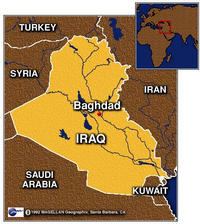 This fellow is apparently writing his weblog from Iraq. He doesn't quite seem to be a native, but it is nevertheless a good look into how it is to be there. This fellow is apparently writing his weblog from Iraq. He doesn't quite seem to be a native, but it is nevertheless a good look into how it is to be there."You learn to deal with the scheduled blackouts, you know when they are and for how many hours. But the last couple of days have been really bad. Very erratic, they turn it on and off whenever they like. We just freeze and thaw then freeze again. It has been very cold for the season and it is expected to get colder. The prices of kerosene heaters have gone thru the roof. There is a local factory, state owned, which manufactures these heaters, 130,000 Iraqi Dinars a pop. But buying one requires approval from the general manager. Don't ask. I can't figure why. It wouldn't be called bureaucracy otherwise.
Now take your newly acquired heater and stand in front of the company's building, someone will offer you 200,000 Iraqi Dinars for it within a minute. Look for it in the shops you will find it for 260,000 ID. That's free market economy isn't it? I decided it was cheaper to bring down an extra blanket." When NATO was bombing Beograd I was chatting with a Serbian friend there online, while it was happening and sirens were going off, etc. That really gives a different perspective on things. You can't just generalize a population into some abstract symbol of an enemy when you can actually talk with them and we're friends. I hope some more people in Iraq can be online.
[ Information | 2002-12-28 15:58 | | PermaLink ] More >
|
|
|
|
 Transcript of talk by Noam Chomsky on Taking Control of Our Lives: Freedom, Sovereignty, and Other Endangered Species. Much good historical stuff. For example, he says this about corporations: Transcript of talk by Noam Chomsky on Taking Control of Our Lives: Freedom, Sovereignty, and Other Endangered Species. Much good historical stuff. For example, he says this about corporations:A century ago ... corporations were granted the rights of persons by radical judicial activism, an extreme violation of classical liberal principles... They were also freed from earlier obligations to keep to specific activities for which they were chartered... Furthermore, in an important move, the courts shifted power upwards, from the stockholders in a partnership to the central management, which was identified with the immortal corporate person." And about who are the main enemies of (personal) freedom and (regional) sovereignty on the planet:"An array of mega-corporations, often linked to one another by strategic alliances, administering a global economy which is in fact a kind of a corporate mercantilism tending toward oligopoly in most sectors, heavily reliant on state power to socialize risk and cost and to subdue recalcitrant elements." Very well put. He goes on to describe very well how the current power structure in the world is not much more than a continuation of previous times where kings ruled and basically owned the kingdom, and all political, economic and legal structures were designed to keep it that way, and to keep the people from ever having any real power. The elites who own things are protected from the general population. Things are structured so that popular opinion is essentially irrelevant if it conflicts with the aims of the ruling elite."One striking example (there are many) has to do with the international economic order -- what are called trade agreements. The general population, as polls make very clear, is strongly opposed to most of what's going on but the issues don't arise. It's not an issue in the elections because the centers of power, the minority of the opulent, are unified in support of instituting a particular kind of socio-economic order. So therefore, the issue doesn't arise. The things that are discussed are things that they don't much care about. Like questions of character or questions of reform which they know that aren't going to be implemented. So that's what discussed. Not what people care about. And that's pretty typical and it makes sense on the assumption that the role of the public as the ignorant and meddlesome outsiders is just to be spectators." If the population actually starts organizing itself, it would ironically not be considered democracy, but more like a crisis of democracy. The kind of thing that riot police and press silence might calm down eventually.
[ Politics | 2002-12-28 16:38 | | PermaLink ] More >
|
|
| Friday, December 27, 2002 |  |
|
|
|
 My little daughter Nadia likes coming into my office to pretend she's me. So, she sits in my chair and gets this really deep voice: "I'm Mr.Flemming". And I ask "What are you doing Mr.Flemming?". I speak Danish to her, but she answers in English. "I'm working on my computer" she says. "Oh, but what are you actually doing on that computer?", I say. "Dot Com" she answers, with great conviction. I don't know where she picked that up from, but it's funny. And then she went and loaded an MP3 file. It is fascinating to see how the generations change, and later generations take things for granted that the earlier generation only learned about along the way. Nadia learned about e-mail first, so she also calls the stuff the mailman brings "e-mail". A cassette tape she calls a "CD". Film cameras don't make a lot of sense to her, and she's never seen a vinyl record or a rotary phone. She hasn't known a world without always-on Internet and digital cameras and cell phones for everybody. My little daughter Nadia likes coming into my office to pretend she's me. So, she sits in my chair and gets this really deep voice: "I'm Mr.Flemming". And I ask "What are you doing Mr.Flemming?". I speak Danish to her, but she answers in English. "I'm working on my computer" she says. "Oh, but what are you actually doing on that computer?", I say. "Dot Com" she answers, with great conviction. I don't know where she picked that up from, but it's funny. And then she went and loaded an MP3 file. It is fascinating to see how the generations change, and later generations take things for granted that the earlier generation only learned about along the way. Nadia learned about e-mail first, so she also calls the stuff the mailman brings "e-mail". A cassette tape she calls a "CD". Film cameras don't make a lot of sense to her, and she's never seen a vinyl record or a rotary phone. She hasn't known a world without always-on Internet and digital cameras and cell phones for everybody.
[ Diary | 2002-12-27 00:35 | | PermaLink ] More >
|
|
|
|
 Evolution on this planet has gone through many steps towards developing gradually more complex creatures. There seems to be a fractal nature to evolution, where for example stages that microbes pass through in a small scale are later repeated at higher levels of complexity. Young life forms will often irresponsibly try to use up all available resources, and will act aggressively against their neighbors, but later on in the cycle, as they become more mature, the various players will negotiate mutually beneficial arrangements amongst each other. The microbes are in many ways ahead of us complex humans in terms of figuring out how different kinds of beings can live together in peace, to everybody's mutual benefit. Evolution on this planet has gone through many steps towards developing gradually more complex creatures. There seems to be a fractal nature to evolution, where for example stages that microbes pass through in a small scale are later repeated at higher levels of complexity. Young life forms will often irresponsibly try to use up all available resources, and will act aggressively against their neighbors, but later on in the cycle, as they become more mature, the various players will negotiate mutually beneficial arrangements amongst each other. The microbes are in many ways ahead of us complex humans in terms of figuring out how different kinds of beings can live together in peace, to everybody's mutual benefit.
Even the most small and simple single celled organisms, bacteria, classified as monera, specialized themselves in amazing ways and organized themselves into complex social structures where they were supporting each other's existence. They specialized in breaking down different kinds of chemicals, and other bacteria would start using the chemicals the first produced, etc., forming a complete ecosystem. That was 1.7-3.7 billion years ago. These organisms then moved on to a higher level of cooperation. Multiple different kinds of creatures together formed a cell. These cells, which formed another kingdom called protista, were around a thousand times bigger than the monera. They were still single-celled, but we could say that they are multi-creatured, because they combine many previously separate creatures into one unit.
The protists, large multi-creatured cells, further evolved. At first they were prokariotes (before nucleus) and then they developed into eukariotes (cells with a nucleus). Eukariotes are now around a thousand times bigger than the prokariotes. Essentially they are very complex bacterial cooperatives, in many ways as complex as human cities, containing millions of specialized parts that would have been independent life forms in previous evolutionary steps. The nucleus of the cell is the information center, containing a DNA blueprint of how things are arranged.
Next step is that multiple nucleated cells combine into multi-celled creatures. And on and on to more and more complex multi-celled creatures, with more and more different specialized parts. Along the way death is invented, to make it easier to improve on the designs along the way, while recycling the old models.
Now, billions of years later, we humans have developed reflective intelligence, so we have the luxury of being able to sit and think about these things. But we are also rather ignorant about the complex social order that adds up to our existence. And we tend to be rather arrogant about it, even thinking that all these tiny creatures are nothing but a nuissance to us. Not realizing that our own bodies are amazingly complex cooperative organizations of billions of cells that each are complex organizations of millions of smaller specialized creatures. And all of it is pretty much working in perfect unison. And we humans tend to be so naive that we think that our conscious awareness is somehow in control of all of this, despite that we hardly understand it, and we mostly are totally unconscious of it.
Anyway, a question is what comes next, beyond us humans maturing into figuring out how we all can co-exist on the same planet. One quite logical thought would be that we all will arrange ourselves as components of a bigger organism of a higher order. That we'll be cells in the global brain, so to speak, and that humanity maybe will become conscious as a whole. Or, maybe other, more unexpected things will happen. Maybe parts of each of us will start cooperating with each other, and new kinds of life forms will emerge.
I'm no biologist. Better places to study some of this would be, for example the book Earth Dance - Living Systems in Evolution by Elisabet Sahtouris.
[ Nature | 2002-12-27 23:59 | | PermaLink ] More >
|
|
| Thursday, December 26, 2002 |  |
|
|
|
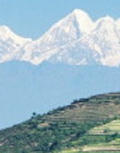 Bawani, a small village in the Himalayas got transformed into an eco-village through better watershed management, by seeding different kinds of grass, and by learning to do things in different ways. Read the story. Everybody chipped in and worked as a collective to help make it happen, with some outside guidance. Now they no longer have to walk many miles for fodder for animals or wood for fuel, and they can grow fruit and vegetables next to their homes. Bawani, a small village in the Himalayas got transformed into an eco-village through better watershed management, by seeding different kinds of grass, and by learning to do things in different ways. Read the story. Everybody chipped in and worked as a collective to help make it happen, with some outside guidance. Now they no longer have to walk many miles for fodder for animals or wood for fuel, and they can grow fruit and vegetables next to their homes.
[ Inspiration | 2002-12-26 04:55 | 0 comments | PermaLink ]
|
|
|
|
ENN/Reuters: "U.S. greenhouse gas emissions linked to global warming fell by 1.2 percent last year, the largest decrease in a decade, due in part to slow economic growth and a milder winter, the government said recently. Last year's decline was in sharp contrast to the average 1.3 percent annual growth rate in U.S. emissions from 1990 to 2000 and was twice the level of the only other drop since 1990 — a 0.6 percent decline in 1991 — according to a report from the Energy Information Administration (EIA)..."
[ Nature | 2002-12-26 04:55 | | PermaLink ] More >
|
|
|
|
APP/ENN: "Microbes in the water may have a greater capacity to devour fuel waste than originally thought, a new study found, suggesting the harbor could cleanse itself within 20 years, barring any major fuel leaks, according to Derek Lovley, a microbiologist at the University of Massachusetts. [...] The key appears to be the presence of sulfate, a salt of sulfuric acid which is abundant in seawater, Lovley said. The microbes appear to use it as a substitute for oxygen, breaking down the waste in the same way humans use oxygen to break down their food."
[ Nature | 2002-12-26 04:55 | | PermaLink ] More >
|
|
|
|
According to The Guardian, the multi-national coffee and chocolate corporation Nestle is demanding a payment of $6m from the government of the world's poorest country, Ethiopia, which is in the middle of the worst famine in nearly 20 years. The money would be compensation for an Ethiopian business which was nationalized in 1975 by a previous military government. To put it in context, $6m could feed 1 million Ethiopians for a month. Nestle didn't even own that company, but years later they bought a German company, which used to have majority shares in it.
[ News | 2002-12-26 04:55 | | PermaLink ] More >
|
|
|
|
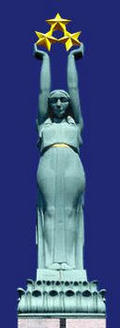 Entry talks were recently completed in Copenhagen with 10 mostly ex-communist countries that soon will be joining the European Union. The countries are Hungary, Poland, the Czech Republic, Slovakia, Slovenia, Estonia, Latvia, Lithuania, Malta and Cyprus. I've never been sure whether the EU is a good or a bad thing - whether it removes unnecessary bureaucratic divisions and increases cooperation, or whether it becomes a bureaucratic big-corporation-lobbied central government. Junius has some interesting thoughts on how the new countries change the equation: Entry talks were recently completed in Copenhagen with 10 mostly ex-communist countries that soon will be joining the European Union. The countries are Hungary, Poland, the Czech Republic, Slovakia, Slovenia, Estonia, Latvia, Lithuania, Malta and Cyprus. I've never been sure whether the EU is a good or a bad thing - whether it removes unnecessary bureaucratic divisions and increases cooperation, or whether it becomes a bureaucratic big-corporation-lobbied central government. Junius has some interesting thoughts on how the new countries change the equation:"My take on this, for what it's worth, is that it gives the UK everything that lukewarm Europhiles/moderate Eurosceptics have always wanted. EU will now be so large and will vary so much in cultural and economic conditions that a thoroughgoing federalist project is dead in the water. The centre - Brussels and Strasbourg - will be fatally weakened vis-à-vis the component parts of the union because twenty-five (or more) states will find it almost impossible to reach agreement on anything but the most anodyne proposals. Moreover, the disparities in wealth within the zone mean that it will be much harder to impose anything like common standards in matters like employment and social security for the EU as a whole. Think about it: a common minimum wage for Germany, France and the UK might be a crazy proposal, but it isn't quite so crazy that there isn't someone who might suggest it. A common minimum wage for Latvia and the Netherlands: the most starry-eyed Euroenthusiast, even fortified by several glasses of champagne, isn't going to entertain the notion!"
[ Politics | 2002-12-26 04:55 | 0 comments | PermaLink ]
|
|
<< Newer stories Page: 1 ... 75 76 77 78 79 ... 97 Older stories >> |
|

This is a collage of things that catch my eye, things that need to be said, and stuff I really care about
TRUTH
BEAUTY
FREEDOM
LOVE
TECHNOLOGY
|
| Mon | Tue | Wed | Thu | Fri | Sat | Sun |
|---|
|
|
|
|
|
|
1 |
| 2 |
3 |
4 |
5 |
6 |
7 |
8 |
| 9 |
10 |
11 |
12 |
13 |
14 |
15 |
| 16 |
17 |
18 |
19 |
20 |
21 |
22 |
| 23 |
24 |
25 |
26 |
27 |
28 |
|
|




